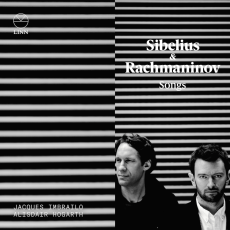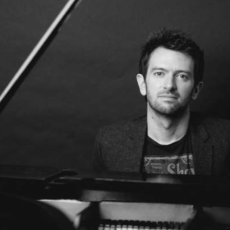Jacques Imbrailo - Sibelius & Rachmaninov: Songs - American Record Guide
The liner notes offer this rationale for this program of songs by Sibelius and Rachmaninoff: (1) they were roughly contemporary; (2) both “felt like lost souls in the brave new musical world of the 20th Century”; and (3) they lived and worked within 400 km. of each other. Beyond that there isn’t much similarity in their musical expression.
Though he was Finnish, most of Sibelius’s songs, including the 14 heard here, are in Swedish, the language of his parents and his preferred language. Only one of these songs is in Finnish. His simpler Five Christmas Songs, Op. 1 (1897–1913) celebrate Christmas as a beacon of light and warmth in the Nordic winter. They contrast vividly with Five Songs, Op. 37 (1900–2) and four more songs (1899–1917), all of them expressions of loss and grief, including the forceful ‘Svarta Rosor’ (with its grief expressed as anger) and ‘Was It a Dream’, which Sibelius considered his finest song.
The nine Rachmaninoff songs date from 1896 to 1902. Almost all convey a melancholy mood, finding full expression in what is perhaps his best known song, ‘Do Not Sing to Me, My Beauty’, but yielding to exuberant hope in the concluding song of the program, ‘Spring Waters’.
Imbrailo makes a commendable impression in this his first recording for Linn. His powerful voice, rich in color and character with lots of grit but less sweetness, is heard in its fullness in ‘Svarta Rosor’. He is at his best in ‘Do Not Sing to Me, My Beauty’ as he reduces his voice to a thin but still firm beam of sound. Hogarth’s commendable collaboration sensitively captures the quiet inner expression of feeling in so many of the songs but also the unconstrained joy of ‘Spring Waters’.
The well-designed booklet offers notes, texts, and translations. It is packaged with minimum plastic in solemn black and white design.


